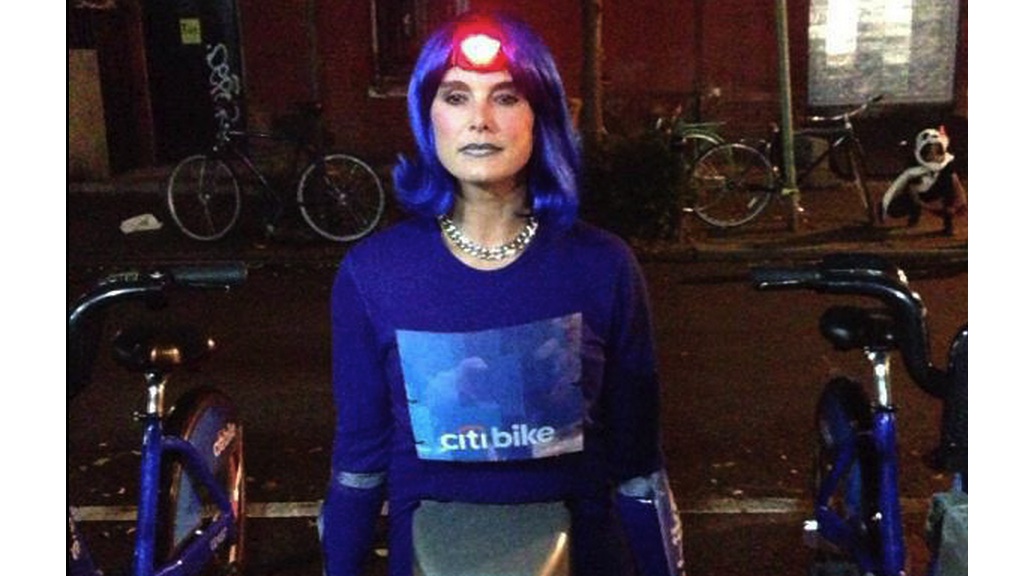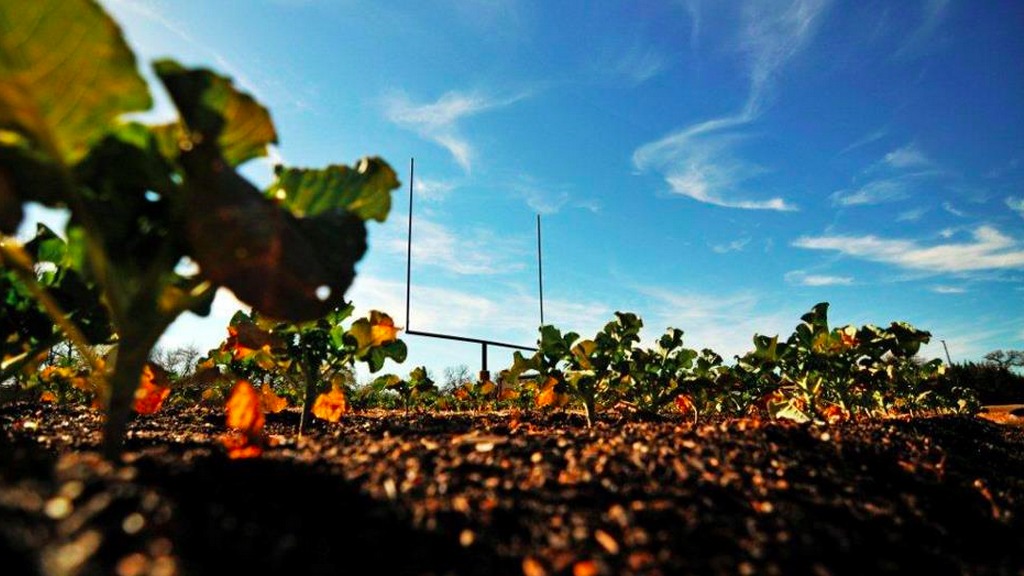Paul Quinn College only has 250 students, so a football field is not really necessary (or financially prudent). Plus, the Dallas college is in a federally recognized food desert, with no supermarkets or restaurants nearby. So the administration made the awesome decision to turn the 1.3-acre football field into a working organic farm:
Yes, the goalposts still stand where the field once was — but the hashmarks and logos have been replaced by sweet potatoes, kale, cilantro, even a chicken coup.
Students get $10 an hour for working on the farm, and it’s also integrated into academia: “Students work on the farm as a part of their biology and social entrepreneurship curricula,” writes the college. The fruits of their labor go to the school cafeteria, food pantries, the community — and even get turned into salsa for Dallas Cowboys games.
What started as something modest is now a huge success: The school estimates it’ll sell 17,500 pounds of food this year, and its profits are now in the six figures. What a cool transformation.



